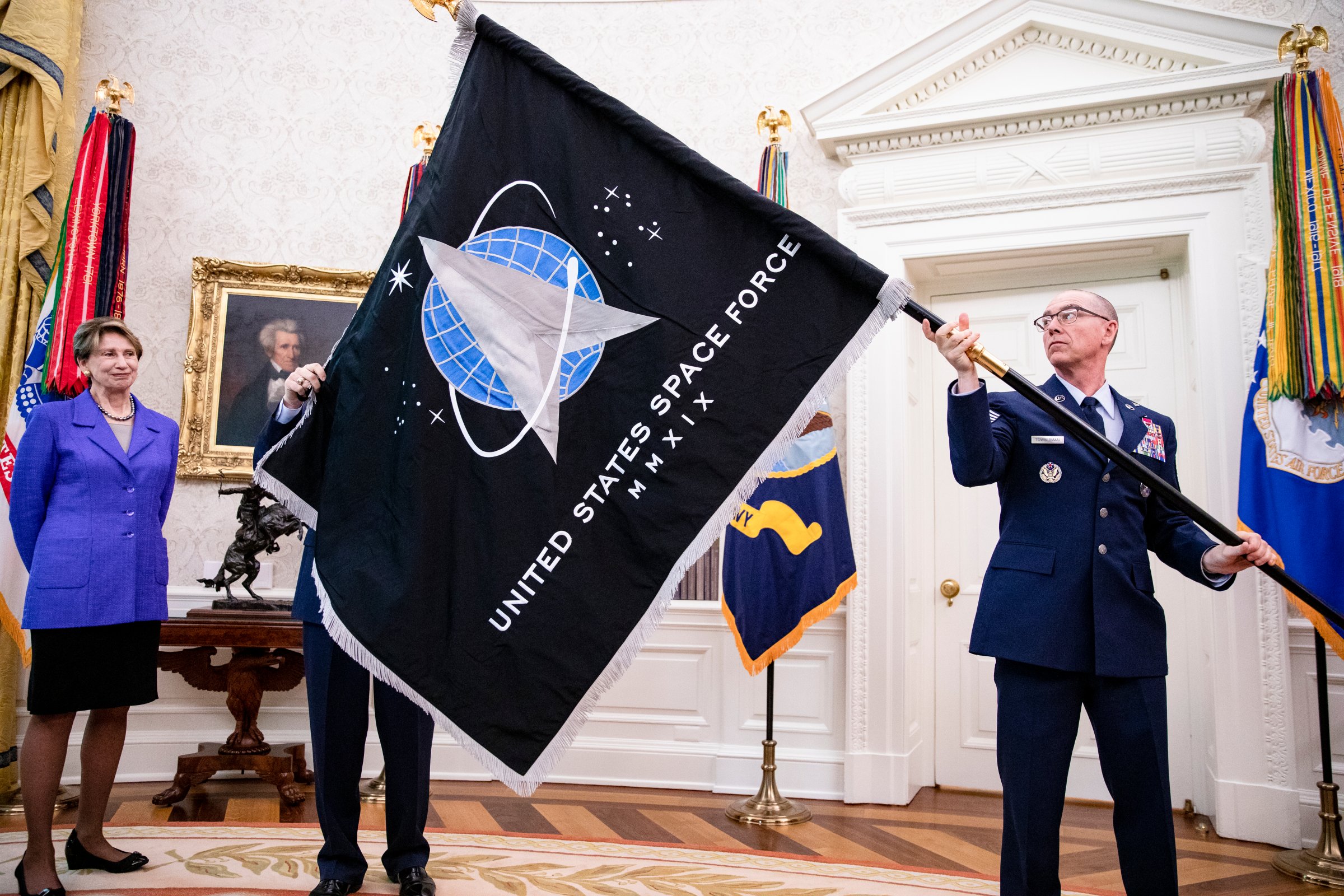
First come the warriors, then come the diplomats. It was on December 20, 2019, that the National Defense Authorization Act was signed, creating the U.S. Space Force, the first new branch of the military to come into being in the 72 years since the Air Force was established. The Space Force’s remit was not just to protect U.S. assets, like spy satellites, from attacks by hostile nations; it was also to prepare the nation for the possibility that space might one day become a war-fighting domain. The Space Force’s motto? “Semper Supra,” or “Always Above.”
And on the ground too, it seems. As Air Force Magazine reports this week, the new branch of the military is looking to exercise soft power as well, planning to create a Regional Space Adviser (RSA) program that would establish the position of space attaché in select countries around the world. According to Space Force spokesperson Lt. Col. Brooke Davis, the new program will “develop a cadre of space professionals focused on strengthening allies and partner relationships.”
The biggest decision the Space Force faces at the moment is how widespread the diplomatic corps will be and which host countries will get an attaché. The best bet for the first country to welcome one of the new diplomats is the U.K., which already has a space force of its own, and has the third highest number of satellites in space, trailing only the U.S. and China. Other countries considered likely to be home to a space attaché include Germany, Italy, France, Canada, Japan, Mexico, South Korea, Denmark, and India—all of which have extensive space assets that could benefit from partnering with the U.S.
But patience is called for. Diplomatic wheels turn slowly, and not only are the countries that will receive attachés not selected, no timeline for when those officers would be dispatched into the field has been set.
“The Space Force just stood up in the past two or three years,” Colonel Charles Metrolis, the Air Force attaché to the U.S. embassy in London, told Air Force Magazine. “They’re going through their personnel and deciding how they want to work on the diplomatic side.”
More Must-Reads from TIME
- Cybersecurity Experts Are Sounding the Alarm on DOGE
- Meet the 2025 Women of the Year
- The Harsh Truth About Disability Inclusion
- Why Do More Young Adults Have Cancer?
- Colman Domingo Leads With Radical Love
- How to Get Better at Doing Things Alone
- Michelle Zauner Stares Down the Darkness
Write to Jeffrey Kluger at jeffrey.kluger@time.com